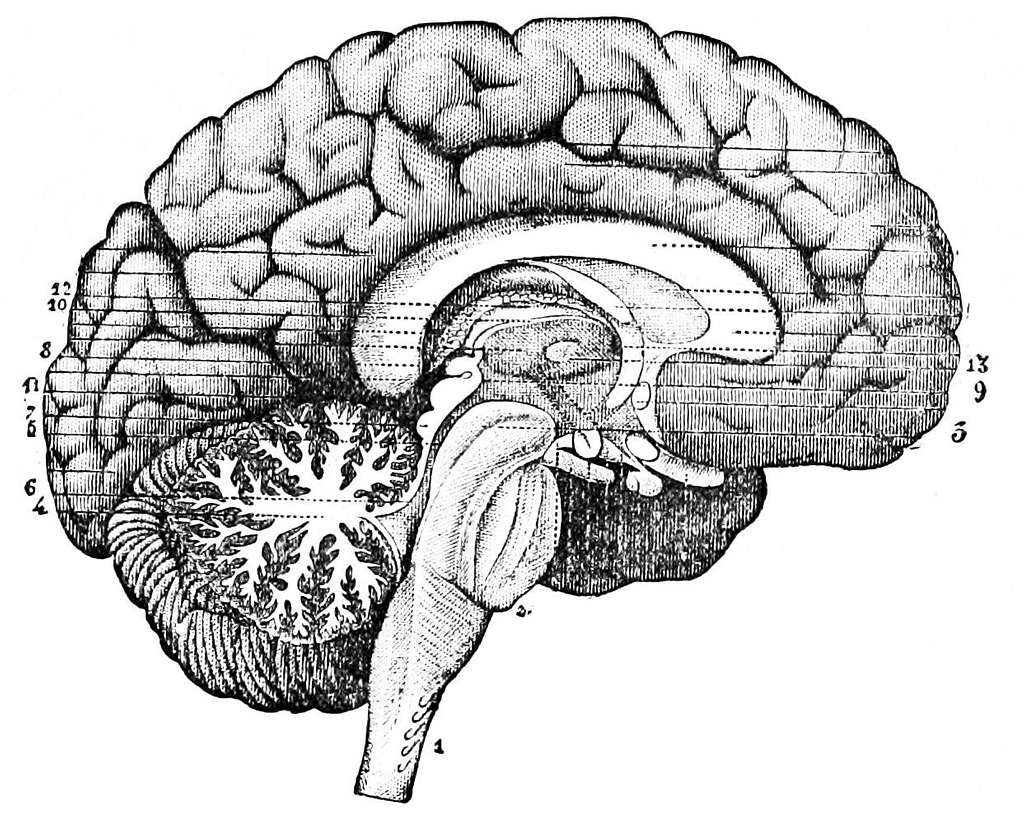The Little Part of the Brain that Affects Thoughts and Reasoning
You see, in this part of the world, every literal person is conversant with the word Medulla Oblongata, even when they are attributing it to the wrong thing such as to emotions and we say it with confidence whereas it is not completely true. The medulla Oblongata is responsible for automatic functions such as blood pressure, heart rate, and breathing, as well as innervation of certain body parts including the head, thorax and abdomen, among other things.
When we discuss emotion and the brain, only one name comes to mind and that is the Amygdala. When we want to discuss logic with respect to our brain, we have to look at the brain according to what is known as the Triune Brain which was first discussed by Paul D. Maclean in the 1960s. It talks about layers of the brain which includes the Neomammalian, Reptilian and the Paleomammalian stage of evolution.
According to this layers, the reptilian complex controls the automatic functions of the body as well as the reflexive functions of the brain. This includes things like heart rate, breathing, and balance. The neomammalian complex is the part of the brain that is required for thinking. It is used in abstract thoughts, slow thinking thanks to the prefrontal cortex being a part of this, and for creativity. The middle region between both complexes is the Paleomammalian complex, and it is also known as the Limbic system. This system controls fear and anger, flight or fight reflexes, and memories.
For most part of the brain to work with relations to the limbic system. For instance, the prefrontal cortex which is responsible for decisions making, make those decisions from the memories gotten from the Limbic system. This system is located above the brain stem and underneath the cerebral cortex consisting of the Thalamus, Hippocampus, Cerebellum, Hypothalamus, Basal Ganglia, and Amygdala.
All sensory information except smell go through and is filtered by the thalamus before reaching the cerebral cortex. It also place a role in wakefulness, memory storage, and painful emotions. The Hypothalamus in the limbic system is conected to the autonomic nervous system which includes heart rate, breathing, blood pressure, sexual response, and digestion, and it also controls the regulation of hormones, The Basal ganglia is responsible for repetitive movement and Habitual behaviors. The hippocampus is responsible for the formation of memories, and spatial orientation and navigation.
The Amygdala is responsible for emotional response, and in the past it was associated with fear after a scientific research where the amygdala in the brains of monkeys were removed leading to the monkeys acting fearlessly but then the amygdala does more than that. The amygdala is responsible for imagination, remembering the past, social interactions, writing, eating, and drinking. The Amygdala is responsible for forming behaviors and memories based on emotions. Since it has to do with emotions, the possibility of playing a role in depression stands.
Study titled THE AMYGDALA AND DECISION MAKING showed that when the amygdala is not damage, triggers autonomic responses to emotional stimuli which also includes monetary rewards and punishments is swift but in people with damaged amygdala, there is the lack of autonomic responses to reward and punishment, and with that they cannot utilize somatic marker cues to determine decision makings in the future. Somatic markers are physical feelings that are associated with emotions that influences the decision making of people.
While the Medulla Oblongata is vital for regulating basic bodily functions, the Limbic system, especially the Amygdala, plays a key role in emotional processing and memory formation and a damage to this small part of the brain can damage the control of thoughts and thought processed actions.
TO READ MORE
https://www.sciencedirect.com/topics/medicine-and-dentistry/triune-brain
https://www.interaction-design.org/literature/article/the-concept-of-the-triune-brain
https://www.ncbi.nlm.nih.gov/pmc/articles/PMC3032808/
https://pubmed.ncbi.nlm.nih.gov/20920513/
https://news.ohsu.edu/2019/06/10/study-reveals-amygdalas-role-in-complex-decision-making
https://www.ncbi.nlm.nih.gov/books/NBK538491/
https://www.physio-pedia.com/Limbic_System
https://www.ncbi.nlm.nih.gov/books/NBK535380/
https://www.ncbi.nlm.nih.gov/books/NBK551589/


I remember how we were so used to insulting ourselves back as children with "your medulla oblongata is not working well", even when we didn't know its function, I wonder where that statement evolved from, but it was one of our favorite words back then. Thank you for more enlightment on this very abused word.
In psychology the amygdala and all the limbic system is very important to explain the functions of the emotions and emotional responses. Reading post like yours is really enriching because we can understand more about this important structure in our brains.
Thanks for sharing this
Thanks for your contribution to the STEMsocial community. Feel free to join us on discord to get to know the rest of us!
Please consider delegating to the @stemsocial account (85% of the curation rewards are returned).
Thanks for including @stemsocial as a beneficiary, which gives you stronger support.